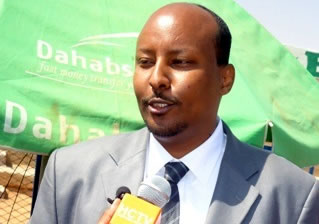 Abdirashid Duale, the chief executive of Dahabshiil, Africa’s largest money-transfer business, visits Hargeisa, the capital of Somaliland, a breakaway province of Somalia, he cannot walk down the street easily. It is not that his security is under threat.
Abdirashid Duale, the chief executive of Dahabshiil, Africa’s largest money-transfer business, visits Hargeisa, the capital of Somaliland, a breakaway province of Somalia, he cannot walk down the street easily. It is not that his security is under threat.
It is that with every step, another businessman stops to greet him. Strolling from the new offices of Dahabshiil’s bank to the headquarters of its money-transfer operation, a distance of perhaps a couple of hundred metres, takes the best part of half an hour.
On arrival, it becomes clear why. In Hargeisa, Dahabshiil, which means “gold smelter” in Somali, is the local economy’s nerve centre. In its money-transfer hub, huge amounts trade over the counter; at one point, your correspondent is handed $200,000 in cash to hold.
In its new bank, every floor is air-conditioned—this in a state where electricity is generated by diesel and costs roughly ten times what it does in the West. Every street trader proudly displays his Dahab account number—the mobile-money arm of the firm’s telecoms network. At least half of Somaliland’s annual income flows through the firm, reckons Mr Duale.
Out of this bustling business, Mr Duale’s family have built an operation that operates throughout Somalia, and well beyond. Dahabshiil’s  money-transfer business now stretches across 126 countries; as well as the one in Hargeisa, the firm has offices in Dubai, Djibouti and London. It transfers money from places such as Rwanda and South Sudan.
money-transfer business now stretches across 126 countries; as well as the one in Hargeisa, the firm has offices in Dubai, Djibouti and London. It transfers money from places such as Rwanda and South Sudan.
The company can also count on the support of powerful politicians, including David Cameron, Britain’s prime minister—who spoke up for the firm when Barclays closed its bank account in 2013. Its success in moving money has helped to rebuild shattered parts of Somalia. It is now trying to become something bigger: a bank.

































